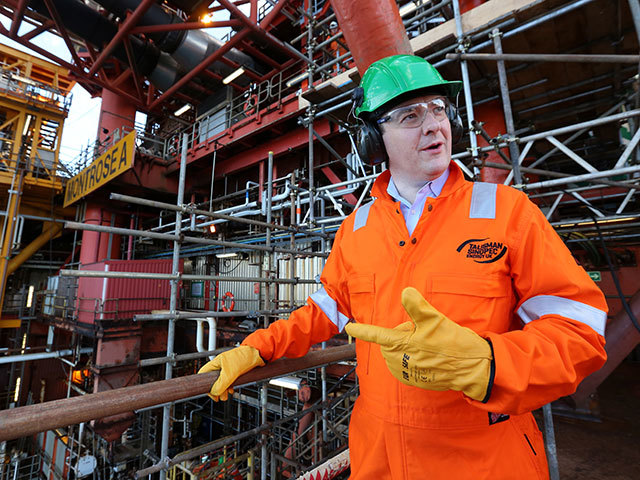
Sir Ian Wood said yesterday that oil bosses have made it clear to him that “fiscal instability” has been a major factor in the North Sea’s recent underperformance.
But his review has found that the problem goes deeper than tax rises like the one dished out by Chancellor George Osborne in 2011.
He criticised the “lack of collaboration and overzealous legal and commercial behaviour” between companies, which he believes has increased costs, caused delays and led to poorer recovery from the UK Continental Shelf.
The review found more than 20 instances in the past three years where squabbling between operators caused delays and, in some cases, left assets stranded.
The tycoon said there has been an overall lack of focus on maximising recovery from the North Sea as operators “pursued individual commercial objectives in isolation”
But the key problem he has identified – and sought to address – is the way the industry is regulated by the UK Government.
“Government’s present stewardship model, which was designed when the UKCS was a relatively young basin and is towards the ‘light touch’ end of intervention, will not be adequate to manage the challenges the UKCS faces in the future,” he said in his review.
“The regulator – situated within the Department of Energy and Climate Change (DECC) – is now significantly under-resourced and far too thinly spread to respond effectively to the many demands of managing an increasingly complex business and operating environment.”
The number of specialist and administrative staff at DECC has fallen over the past 20 years.
In the early 1990s it had 90 personnel dealing with the 90 fields that were in operation at the time. Today, there are more than 300 fields, yet the number of DECC staff has fallen to 50 – and the issues they are working on are more complex than ever.
In contrast, the Norweigian Petroleum Directorate has as many as 200 staff, and their colleagues in the Netherlands have 70.
Sir Ian added: “The review has heard consistent praise for the performance of the present DECC staff, but it was the overwhelming view from the evidence received that the regulator (DECC) is now significantly under-powered.”
The review said that 42billion barrels have so far been extracted from the North Sea while investment in the sector reached a record high last year of more than £14 billion.
However it found there were “serious underlying problems”, with a 38% fall in production between 2010 and 2013 – the equivalent of around 500million barrels. Of that, 360million was due to a rapid fall in production efficiency – which cost the Treasury £6billion in lower tax receipts – while a sharp decline in exploration had led to the equivalent of less than 150million barrels being discovered over the past two years.
A lack of rig availability has hindered new exploration, as has the lack of tax incentives for small explorers, Sir Ian said.
Recommended for you
